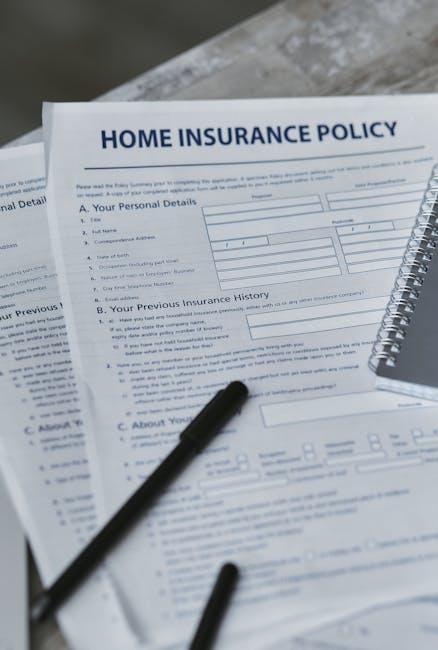Preparing for a meeting with an insurance claims adjuster can be a pivotal moment in the resolution of your insurance claim. Whether you’re dealing with property damage, a car accident, or another type of claim, understanding how to effectively communicate and present your case is crucial. This guide is designed to equip you with the essential strategies and knowledge needed to navigate this often complex interaction. By following these authoritative steps, you will be able to confidently advocate for yourself, ensure a fair assessment of your situation, and maximize the potential for a favorable outcome. From organizing documentation to understanding the adjuster’s role, we will cover every aspect of preparation, empowering you to take control of the process with clarity and precision.
Understanding the Role of the Insurance Claims Adjuster
When preparing for a meeting with a claims adjuster, it’s essential to comprehend their pivotal role in the insurance process. Claims adjusters are responsible for evaluating the damage or loss to determine the amount that the insurance company should pay. They serve as the bridge between the policyholder and the insurer, ensuring that claims are processed fairly and efficiently. Understanding this role can significantly impact how you prepare and present your case.
To effectively engage with a claims adjuster, consider the following steps:
- Gather Documentation: Compile all relevant documents such as photos, receipts, repair estimates, and any communication with service providers.
- Understand Your Policy: Review your insurance policy thoroughly to know what is covered and any limits or exclusions that may apply.
- Prepare a Detailed Account: Write a clear and concise account of the incident or damage, highlighting key details and timelines.
- Be Honest and Consistent: Ensure all information provided is accurate and consistent across all documents and communications.
- Ask Questions: Don’t hesitate to ask the adjuster to clarify any aspects of the claims process or policy details you don’t understand.
Approaching the meeting with a clear understanding of the adjuster’s role and having well-prepared documentation can help facilitate a smoother claims process.
Gathering Essential Documentation for Your Claim
When preparing for your meeting with an insurance claims adjuster, ensuring you have all necessary documentation is crucial. Start by gathering all relevant policy documents, which detail your coverage and any applicable limits or exclusions. It’s important to have these on hand to reference specific terms and conditions during your discussion. Additionally, compile any correspondence with the insurance company related to your claim, including emails and letters, as these can provide context and support your case.
- Photographs and Videos: Capture clear images and videos of the damage or loss, showcasing all affected areas or items.
- Receipts and Invoices: Collect all financial documents related to repairs, replacements, or temporary living expenses incurred due to the incident.
- Estimates from Contractors: Obtain written estimates for any necessary repairs or replacements from reputable contractors or service providers.
- Police or Incident Reports: If applicable, include any official reports that document the event or damage, as these can serve as crucial evidence.
Having these documents organized and readily accessible will not only streamline your meeting but also demonstrate your preparedness and credibility, potentially expediting the claims process.

Effective Communication Strategies for a Successful Meeting
In preparation for your meeting with an insurance claims adjuster, it’s crucial to have a well-organized strategy to ensure effective communication. Begin by gathering all relevant documentation and evidence related to your claim. This includes photos of the damage, repair estimates, receipts, and any correspondence with the insurance company. Having these documents readily accessible will help you present your case clearly and confidently.
Additionally, consider the following communication strategies to enhance your meeting:
- Be Clear and Concise: Articulate your points without unnecessary details. Stick to the facts to maintain clarity.
- Listen Actively: Pay close attention to the adjuster’s questions and remarks. Active listening ensures you address their concerns effectively.
- Ask Questions: If any part of the process or policy is unclear, seek clarification. This demonstrates your engagement and understanding.
- Stay Professional: Maintain a respectful and professional tone, even if discussions become challenging. This sets a constructive tone for the meeting.
Implementing these strategies will help you navigate the meeting with confidence and increase the likelihood of a favorable outcome.

Presenting Your Case with Confidence and Clarity
When meeting with an insurance claims adjuster, it’s essential to convey your information clearly and confidently. Start by organizing all your documents, such as police reports, medical records, and repair estimates, into a neatly arranged folder or digital file. This preparation not only helps you access information quickly but also demonstrates your seriousness and preparedness.
During the meeting, articulate your points with precision. Make use of bullet points to highlight key details:
- Chronological sequence of events
- Itemized list of damages or losses
- Summary of conversations with other involved parties
Maintain a calm demeanor, even when discussing contentious issues. If you’re unsure about a question, it’s better to ask for clarification than to guess. Remember, your goal is to present an accurate and compelling case, so take your time to communicate effectively and assertively.
Future Outlook
preparing for a meeting with an insurance claims adjuster requires meticulous attention to detail and a proactive approach. By gathering all necessary documentation, understanding your policy thoroughly, and presenting your case clearly, you can ensure a smoother and more efficient claims process. Remember, preparation is your strongest ally in these discussions. Take the time to organize your information, anticipate potential questions, and remain calm and professional during the meeting. By following these guidelines, you not only advocate effectively for your interests but also set the stage for a fair and timely resolution.

